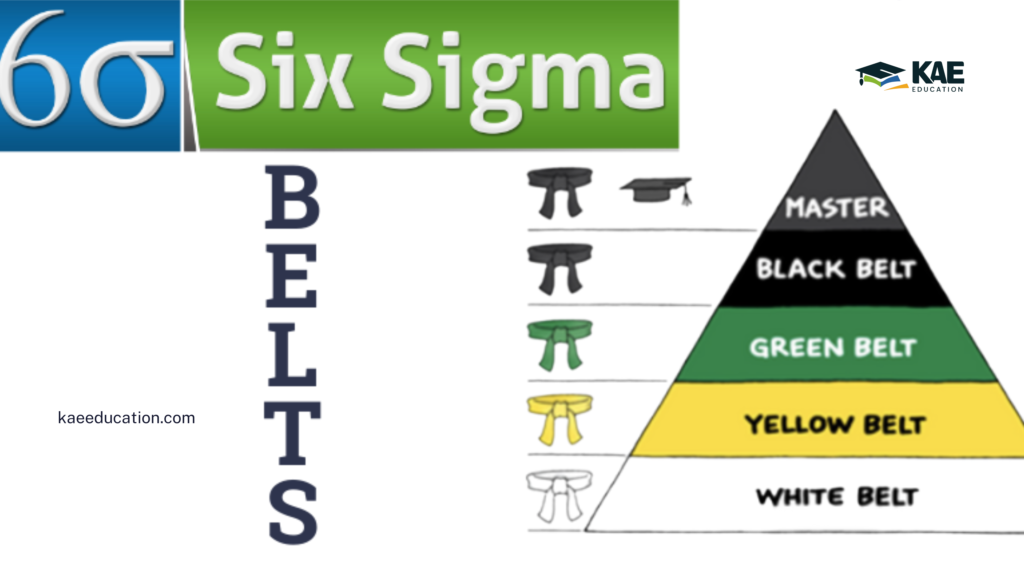Lean Six Sigma in 2025: Is Green Belt Still the Gold Standard?
Introduction
In an era where efficiency and quality are the cornerstones of success, Lean Six Sigma certifications have remained vital for professionals and organizations alike. Among the various levels of certification, the Green Belt has consistently been viewed as the foundation for operational excellence. But as Industries evolve and challenges become more complex, is the Lean Process Analyst still the gold standard in 2025? This blog dives into the significance, future demand, and growth potential of the Lean Six Sigma Process Analyst certification.
What is Lean Six Sigma Green Belt?
Lean Six Sigma Green Belt certification equips professionals with tools and techniques to improve processes, reduce waste, and drive quality. It’s ideal for those who:
(1) Work on process improvement projects.
(2) Lead or support data-driven decisions within teams.
(3) Aspire to enhance organizational efficiency and customer satisfaction.
Key Features of Green Belt Certification:
(1) Combines Lean methodologies with Six Sigma principles.
(2) Focuses on DMAIC (Define, Measure, Analyze, Improve, Control) framework.
(3) Prepares professionals to solve mid-level complexity issues.
Why Green Belt Certification Matters in 2025
(1) Future Demand Drivers:
(1) Global Emphasis on Efficiency: Companies are focusing on reducing waste and optimizing resources to stay competitive.
(2) Automation and Technology: While technology simplifies processes, human expertise is needed to design, analyze, and improve workflows.
(3) Remote Work Trends: Green Belt-certified professionals ensure seamless virtual collaboration and efficiency in distributed teams.
(4) Sustainability Goals: Industries increasingly rely on Lean Six Sigma principles to meet sustainability targets.

(2) Growth Projections:
(1) The Lean Six Sigma market is expected to grow at a CAGR of over 6% between 2024 and 2025, driven by demand for skilled professionals.
(2) Companies in Healthcare, Manufacturing, IT, and Services are amplifying their reliance on Lean Process Analyst-certified leaders for operational success.
Advantages of Earning a Lean Process Analyst
(1) Career Advancement: Sets you apart as a problem-solver and efficiency expert.
(2) High Demand Across Industries: Applicable to diverse fields like Healthcare, Finance, Supply chain, and IT.
(3) Improved Earning Potential: Certified Green Belt professionals often command higher salaries.
(4) Organizational Impact: Drive measurable results through reduced costs, improved processes, and enhanced customer satisfaction.
How to Stay Relevant with a Green Belt Certification
(1) Stay Updated: Engage in continuous learning and stay informed about the latest industry trends.
(2) Apply Skills Proactively: Lead impactful projects within your organization to showcase your expertise.
(3) Network with Peers: Join Lean Six Sigma communities to exchange knowledge and insights.
(4) Upgrade to Black Belt: Consider advancing your certification for higher leadership roles.
Conclusion
In 2025, the Lean Six Sigma Green Belt certification remains a powerful tool for professionals aiming to excel in process improvement. Its relevance across Industries, coupled with its adaptability to modern challenges, ensures its place as the gold standard for operational excellence. By earning a Lean Process Analyst, you position yourself as a key contributor to your organization’s success and sustainability. To ensure your future, begin your path now!
FAQs About Lean Six Sigma Green Belt
It’s a professional certification that trains individuals in process improvement, combining Lean and Six Sigma methodologies.
Professionals involved in process management, team leaders, and those aspiring to enhance operational efficiency.
The training typically takes 2-4 weeks, depending on the provider, followed by an exam and project completion.
Absolutely. The demand for process improvement professionals continues to grow across Industries.
Industries like manufacturing, Healthcare, IT, logistics, and Finance highly value Green Belt-certified professionals.
Yes, it is recognized Internationally, opening doors to global career opportunities.
Green Belt focuses on mid-level process improvement, while Black Belt involves leading complex, organization-wide projects.

